“Let's face it; the future as a Rolling Stone is very uncertain.”Charlie Is My Darling [Rolling With The Stones] (Peter Whitehead, 1966)
Sep
28
Ben E. King – 1938
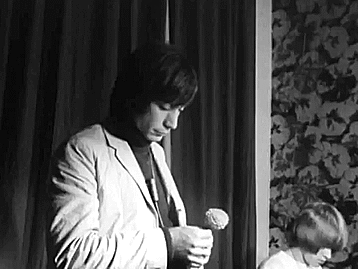
Charlie sheepishly smells a carnation (via), Brian can be seen in the background. DP: Peter Whitehead.
Soul or rhythm and blues for Ben E. King's birthday.
– Brian Jones
While then-manager Oldham's dream of an all-Stones A Clockwork Orange never manifested, there was an attempt to counter The Beatles' A Hard Day's Night (1964). That too, failed. Instead, Charlie became a cinéma vérité roadmovie of the Stones' touring Ireland in 1965. Whitehead's camera is there for Charlie.
CinémaVérité
El chacal de Nahueltoro [Jackal of Nahueltoro] (Miguel Littin, 1969)
Sep
23
1960
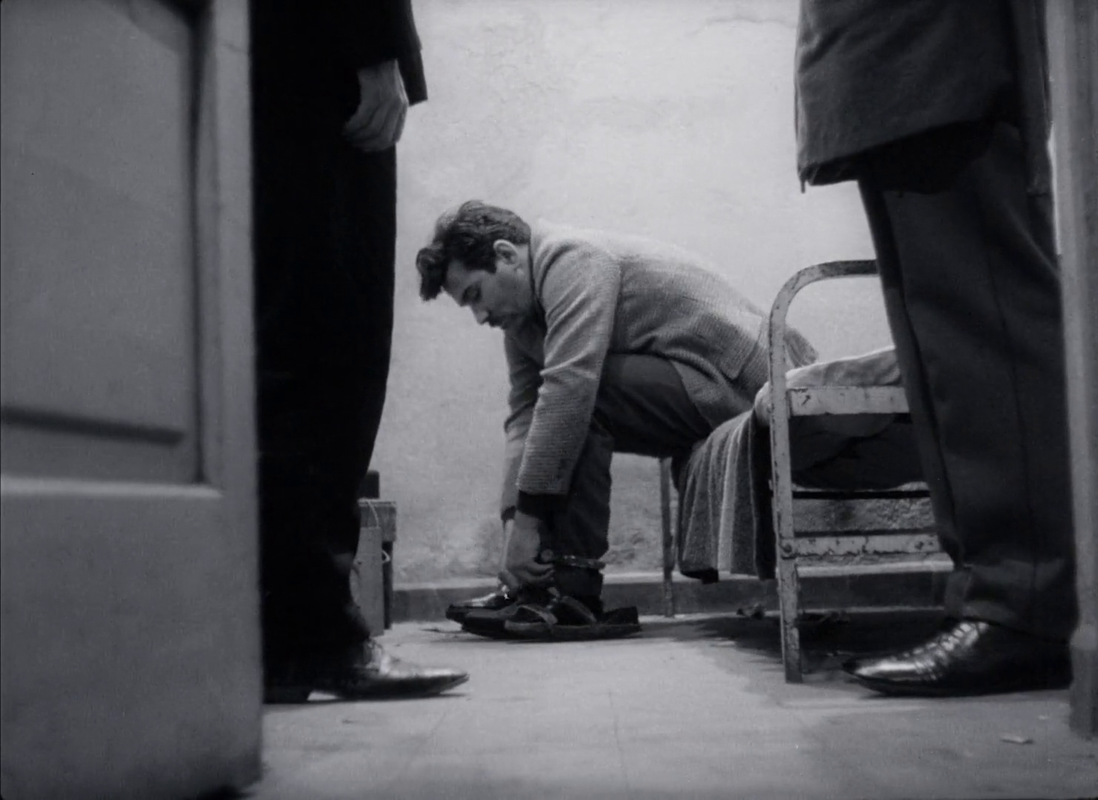
The condemned (Nelson Villagra) in his penitentiary cell, swapping out his sandals for leather dress shoes. Two members of the Gendarmería de Chile wait for him to finish. DP: Héctor Ríos.
Full title: En cuanto a la infancia, andar, regeneración y muerte de Jorge del Carmen Valenzuela Torres, quien se hace llamar también José del Carmen Valenzuela Torres, Jorge Sandoval Espinoza, José Jorge Castillo Torres, alias el Campano, el Trucha, el Canaca, el Chacal de Nahueltoro
“Those flowers, take them away;
they’re only funeral decorations.
This is The Fall and this is a drudge nation.
Your decadent sins will wreak discipline.
You puritan, you shook me.
I wash every day.”Hail the New Puritan (Charles Atlas, 1987)
Sep
22
Fall
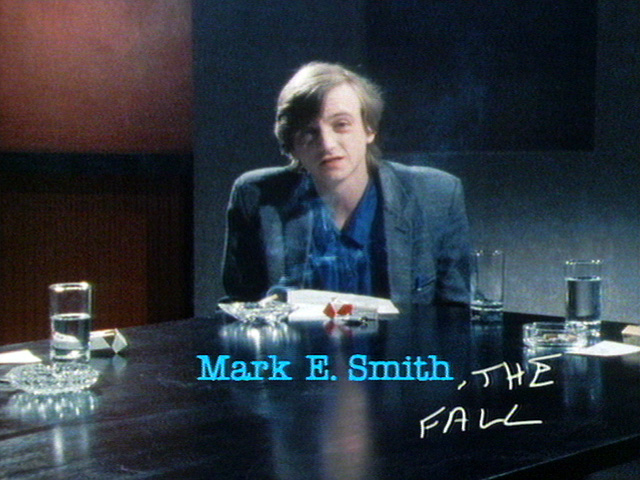
As it says on the tin, it's Mark E. Smith of The Fall (via). DP: John Simmons.
The Northern Hemisphere welcomes the autumn equinox
– The Fall, New Puritan (1979), via
A fictional day in the life of choreographer Michael Clark, company, and friends in preparation of the dance piece New Puritans.
“Sir Thomas Sheridan, Jacobite military secretary. Suffering advanced debility and loss of memory. Former military engagement, 56 years ago. Sir John MacDonald, Jacobite captain of cavalry. Aged, frequently intoxicated, described as 'a man of the most limited capacities.' John William O'Sullivan, Jacobite quartermaster general. Described as 'an Irishman whose vanity is superseded only by his lack of wisdom.' Prince Charles Edward Stuart, Jacobite commander in chief. Former military experience: 10 days at a siege at the age of 13.”Culloden (Peter Watkins, 1964)
Apr
16
1746
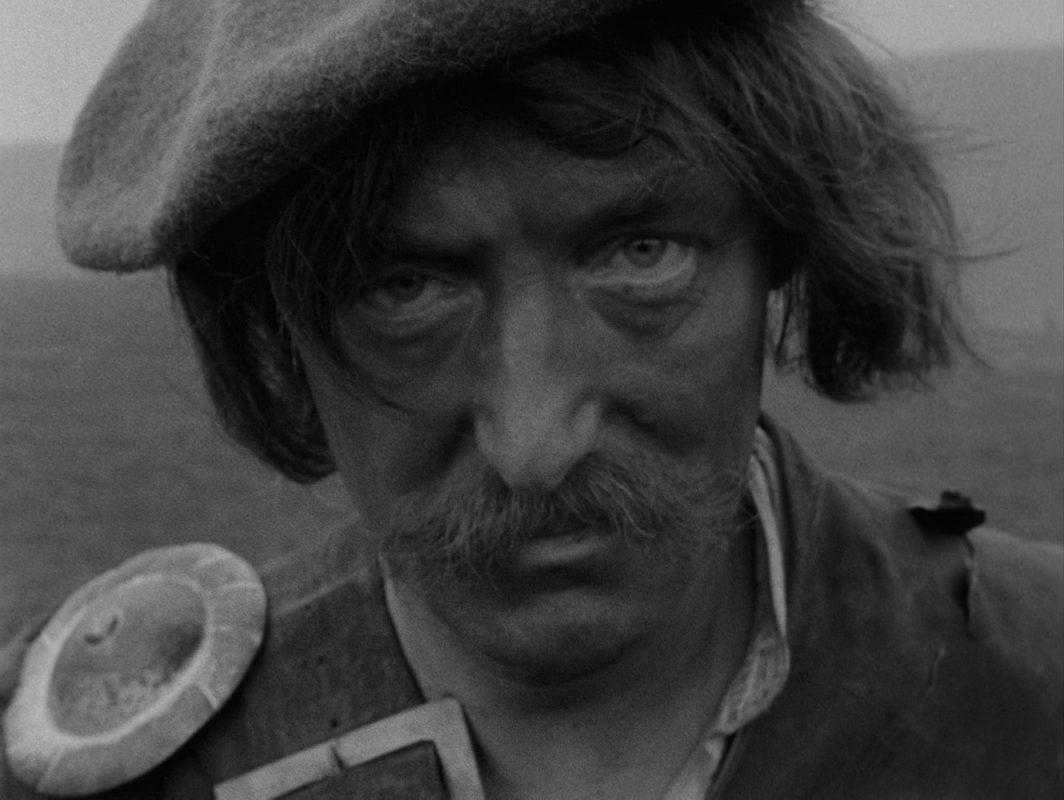
One of the clansman. The look in his eyes foreshadows the Vietnam War this films comments on. DP: Dick Bush.
– narrator
Laukaus tehtaalla [A Shot in the Factory] (Erkko Kivikoski, 1973)
Feb
21
Nixon goes to China

Workers and bosses negotiate the situation. DP: Esko Nevalainen.
Diplomacy on Nixon's visit to China (February 21 — 28, 1972)
The killing of the factory's boss by one of the workers leads to endless negotiations between the two parties.
Shot in cinéma vérité style, with a mostly amateur cast, Laukaus tehtaalla mirrors the working classes' insecurity caused by the 1973 energy crisis in more ways than one.
El chacal de Nahueltoro [Jackal of Nahueltoro] (Miguel Littin, 1969)
May
2
soup

The man (Nelson Villagra) just handed a tin plate to kind Rosa (Shenda Román) for a refill while they talk about his life. DP: Héctor Ríos.
Full title: En cuanto a la infancia, andar, regeneración y muerte de Jorge del Carmen Valenzuela Torres, quien se hace llamar también José del Carmen Valenzuela Torres, Jorge Sandoval Espinoza, José Jorge Castillo Torres, alias el Campano, el Trucha, el Canaca, el Chacal de Nahueltoro.
“America is as psychotic as it is powerful and violence is the only goddamn thing that will command your attention.”Punishment Park (Peter Watkins, 1971)
Dec
13
U.S. National Guard Birthday

Military men arresting one of the dissidents. A man in black uniform and white helmet interacts directly with the camera c.q. the viewer. DPs: Joan Churchill & Peter Smokler.
It's the U.S. National Guard Birthday (USA) and the National Guard shows up.
A European camera crew follows a diverse group of American minor dissidents – pacifists, feminists, communists – who are given the choice to spend decades in federal prison, or three days in Bear Mountain Punishment Park, chased by National Guardsmen and law enforcement officers. If they manage to capture the American flag, they're free to go.
– Defendant Lee Robert Brown
While the washed-out 16mm footage and references to #Nixon may tell you otherwise, Punishment Park remains a gut-punching portrait of a timeless America.
“I dream of resurrection in a party dress.”The Savage Eye (Ben Maddow, Sidney Meyers + Joseph Strick, 1959)
Dec
7
National Judith Day
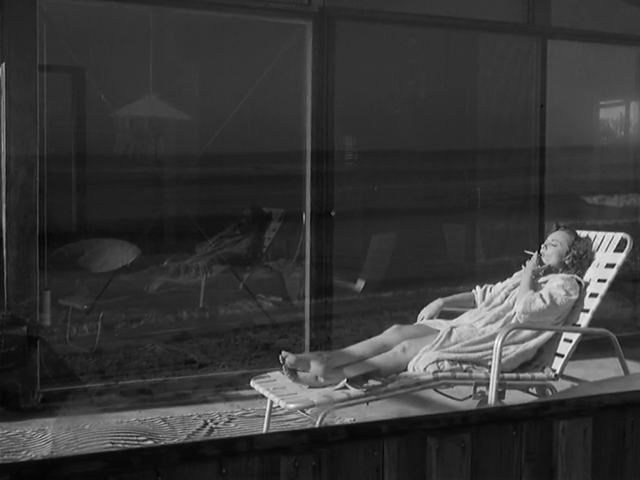
Judith X (Barbara Baxley) relaxing on a sun lounger. DPs: Jack Couffer, Helen Levitt & Haskell Wexler.
A Judith or Judy for National Judith Day (USA)
By times, The Savage Eye has more in common with mondo than with drama. Judith's betrayed, by her husband. She takes a plane out out out. To Los Angeles, where an angel – it's their town after all – talks to her. About her life, the old one and the new. She tries to reinvent herself with new clothes, a hairstyle, a manicure. It fills the longs days, that too. She attends bloodsports. A burlesque, with her new lover, a married man. There are bleeders and drinkers and jumpers. Sticky sheets. New eyes and fiery tongues, courtesy of Jesus. What is Judith's life if not a stranger's.
– Judith X
Ben Maddow, Sidney Meyers, and Joseph Strick's lonely exploration of a gritty, hopeless LA was filmed over 4 years by photographers Haskell Wexler, Helen Levitt, and Jack Couffer in wonderful, merely wordless cinéma vérité. It feels naked and raw, and broke ground for the American New Wave that came crashing in almost a decade later.
“And wherever he went, he took with him his music, his poetry, his language and his children… thus within a century of Culloden, the English and the Scottish lowlanders had made secure forever their religion, their commerce, their culture, their ruling dynasty.”Culloden [The Battle of Culloden] (Peter Watkins, 1964)
Jul
27
Bagpipe Appreciation Day
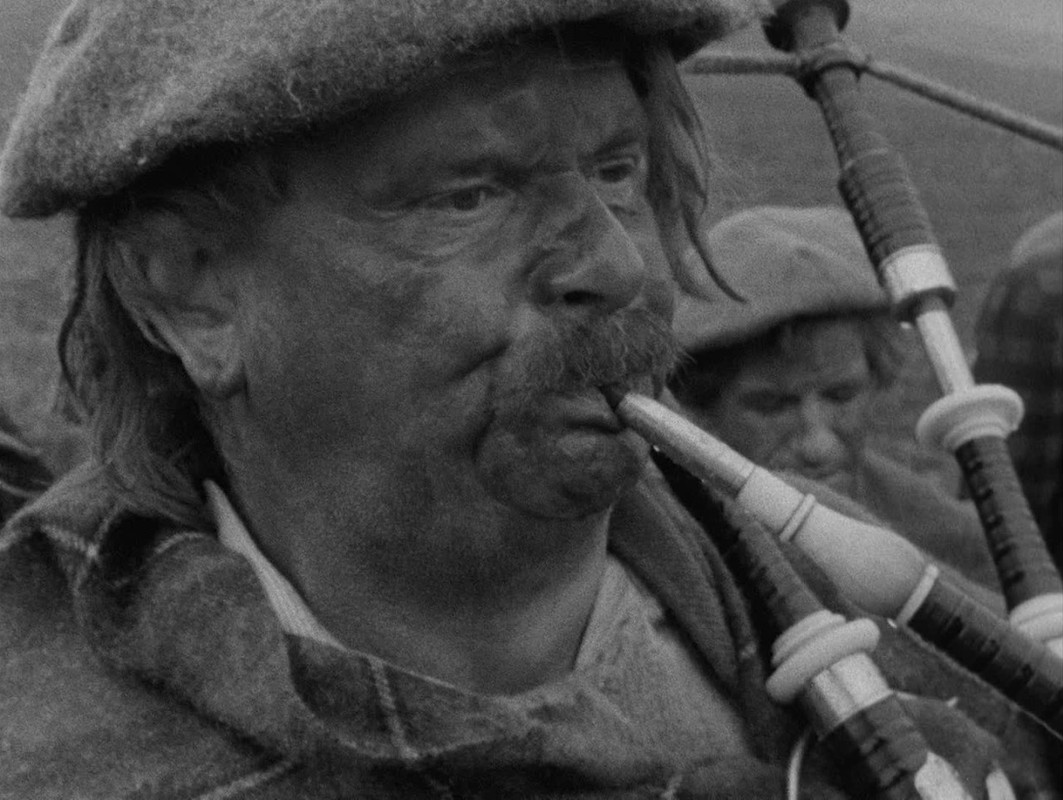
John Hunt Leigh in Culloden, pìobaireachd “ceòl mór” (litt. piping “great music”). DP: Dick Bush.
Great Highland #bagpipes, or a' phìob mhòr as they're called in Scottish Gaelic, are traditionally played on the battlefield. Peter Watkins' Culloden moves the senseless bloodshed from 1960s Vietnam to the Scottish Highlands of 1746.
– narrator
The most clearly it's seen in the men's eyes. That stare we recognise all too well from the many images that reached the west in the 60s, ever before and after.
“Sir John MacDonald, Jacobite captain of cavalry. Aged, frequently intoxicated, described as 'a man of the most limited capacities'.”Culloden (Peter Watkins, 1964)
May
23

Wigged man at a table, drinking wine with three men lower in rank standing behind them with their arms crossed. DP: Dick Bush.
– narrator